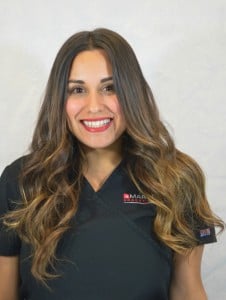
Listed below are some home remedies. These remedies are not a guarantee but many people have had great success of getting rid of their hiccups:
Breathe in as much as you can. Without letting any air out, swallow. If you can breathe in a bit more, do so. Keep swallowing and inhaling until you can’t swallow or inhale any longer. When you absolutely can’t swallow anymore, exhale all the way in a controlled fashion. Your breath should be reset.
Try the open-mouthed swallowing method. Open your mouth and keep it open for a couple of minutes. If you feel the need to swallow, do so, but try to keep your lips apart when you do.
- Keep gulping every few seconds, especially when you feel a hiccup might be coming. A couple of hiccups might escape, but with continuous gulping, hiccups should be gone within 3 minutes.
- Make sure you are not wearing anything tight around your chest. If you are, loosen it.
Try to stretch your diaphragm. Slowly breathe in until you feel like you can’t inhale any more, trying to get a feel for extending the breath down towards your abdomen. You are trying to stretch your diaphragm to interrupt the hiccups.
Hold your breath for 30 seconds. Exhale slowly until your lungs are empty. Repeat 4 to 5 times or until you feel better.
Simulate breathing. Take a deep breath and hold it. While doing so, plug your nose and close your mouth. Now begin to move your diaphragm as if you were breathing in and out rapidly.
- Exhale once the hiccups disappear or you need more air. Repeat if hiccups persist.
Play bartender. Place 4 or 5 drops of Angostura Bitters on a lemon wedge and bite into the wedge, sucking in the juice. Sugar may be added to the lemon to ease the taste.
The taste elicits a similar reaction as to someone scaring you.
If you don’t have bitters, just suck on a lemon straight.
Use straws. Get a glass of water and two straws. Put one straw inside the glass and the other
straw pressed up against the side of the glass on the outside. Put both straws in your mouth at once, drink the water like you would normally, taking as big of gulps as possible.
Get out the pickle juice or vinegar. Drink about a half a teaspoon of either every 7-10 seconds until your hiccups stop. Don’t like pickle juice or vinegar? Well, hey, that’s even more motivation!
Take a spoonful of sugar. Not only does it make the medicine go down, but it could get rid of your
hiccups too. Take a spoon and fill it with brown sugar (or honey), holding the spoon in your mouth for five seconds. Swallow and take a sip of water. If this doesn’t work straight away, do not ingest spoonful after spoonful of sugar. Switch methods if you need to.
Use hiccups as an excuse to eat peanut butter.Get a big tablespoon of peanut butter and put it in
your mouth and hold it for 5-10 seconds. Then, swallow the peanut butter without chewing. The saliva should’ve broken down the peanut butter a bit, making it easier to swallow.
- Alternatively you can use Almond Butter or Nutella. Anything with a sticky gooey consistency similar to peanut butter will do.
Opt for salt. Swallow 1 teaspoon of salt, followed by a small sip of water. Make sure to follow it up with slow breaths, staying relaxed.
Drink upside down. Fill a regular glass or plastic cup with water halfway full. Then, either lie upside down over the side of your bed or couch or bend at the waist and take a gulp or two of water (don’t spill) and straighten out. If they’re not gone, drink a bit more (also upside down).
As frustrating as hiccups can be, applying these methods is worth a try. In some cases, hiccups may be a sign of an underlying medical condition. For most people, a bout of hiccups usually lasts only a few minutes. Rarely, hiccups may persist for months. If your hiccups last long enough to significantly interfere with sleep, eating, or normal activities, you should consider seeing a health care provider.
The information provided is for general interest only and should not be misconstrued as a diagnosis, prognosis or treatment recommendation. This information does not in any way constitute the practice of medicine, or any other health care profession. Readers are directed to consult their health care provider regarding their specific health situation. Marque Medical is not liable for any action taken by a reader based upon this information.
